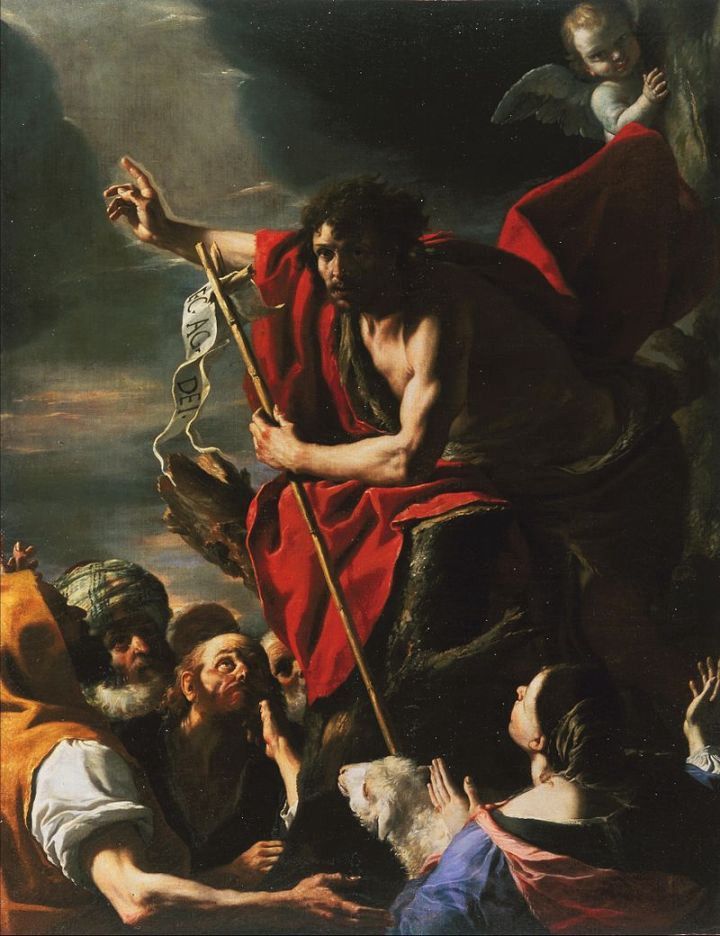
Edit profile 墨鏡外望,仍舊失落。 (Disclaimer:本網發表的時事文章若提出批評,旨在指出相關制度、政策或措施存在錯誤或缺點,目的是促使矯正或消除這些錯誤或缺點,循合法途徑予以改善,絕無意圖煽動他人對政府或其他社群產生憎恨、不滿或敵意)
The Savior Complex (Luke 7:18–35, Matthew 11:2–19)

Recently, a friend said that 2019 is difficult, and it is estimated that the first quarter of 20 will be even more difficult. Occasionally I heard someone miss life at the beginning of 2019, obviously the same person was still complaining about the persecution of life at that time. Change is coming, how should people react?
In the New Testament, John the Baptist reached about the first three pages in the Gospels of Matthew and Luke, and was already behind bars and anticipating his own end. He still asked if Jesus was the Savior they were waiting for? Rather than revealing his identity directly to his disciples, Jesus let his disciples see his work. Why use such an indirect approach?
The question of asking the Messiah, in addition to being a question of faith, has also attracted the attention of some philosophers in recent years (such as Agamben's study of Paul). The author believes that this question also reflects a test of what the inquirer expects of a savior, that a person's behavior in the face of change represents what kind of savior he expects. Jesus gave John the Baptist a yes-or-no answer: He was indeed the Son of God, whom the prophets waited for, but he was not the savior the world expected. So "Blessed is he who does not stumble because of me." This gap leads to a message: John announced that change is imminent, and there are many difficulties and people need to take the initiative to respond. This is both the contemporary audience of Jesus and the place where we are tested today.
If we compare the records of Matthew and Luke, we will find that there is a difference in the middle part of Jesus' words (Luke 7:29-30, Matthew 11:12-14), which I think the authors expressed through Jesus' mouth Such gaps and challenges. Matthew upholds his concern for the kingdom of heaven, referring to the last scene of Malachi, referring to him as the herald of God's coming, so he is "Elijah". The original word for violence (ἁρπάζουσιν) can also be positively interpreted as hard work. The kingdom of heaven is not something that can be easily obtained, but requires people to work hard to enter it. Believers must be prepared to face great challenges. Luke focuses on the changes brought about by the Son of God from becoming to walking on the cross, but his depiction of John the Baptist is a darker and more violent picture, profiling what resistance the Gospel faced. John the Baptist was the son of a priest and should remain in the religious establishment. However, his birth, name, and preaching in the wilderness are completely unreasonable, and are as subversive as his preaching. The result is also a big gap: the social sages abandoned him, but the marginalized people repented because of him. Luke's style of writing implies that Jesus, too, would have been violently killed by those in power, but redeemed on the cross.
Regarding the contemporary response, Jesus used a vivid metaphor, that is, people do not cry because of grief, nor do they dance because of music. Simply put, there is no response! Jesus accused people of not only failing to act with change but using violence to suppress it. This reflects in the audience's mind that Jesus is not a qualified Messiah, people expect a superhero-esque savior, and they won't bet on anyone until then. Looking forward to the arrival of superheroes to solve all problems, there will be no worries if you stand on the right team. So people - especially the elites - did not respond to the claims of John and Jesus. They don't necessarily want the kingdom of heaven to come, but they just need to add icing on the cake to the current order. No wonder they violently crush all the shaking forces, including John and Jesus. However, the Son of God also proclaimed that change was inevitable, and in the end the rulers of that day stumbled, "Blessed is he who does not stumble because of me."
The same is true in Hong Kong today. Because of social movements, pneumonia, etc., changes have come, but why are there still people who do not respond or even resist? In the face of violent and fierce resistance, the author believes that Christians should embrace change according to their own calling. Or help young people in difficulties due to the social movement, deliver masks to street cleaners and orphaned elderly people, provide shelter for Mai refugees, etc., so that more people can survive the changing situation. God's protection and salvation is to invite people to participate in the achievement, and it is up to each person to be saved to change the world, not to stand in line and wait for the kingdom to come. This is the real difference between the Savior and the Son of Man, and it is also the testimony of Christians in the great age. "Wisdom is proved by one's own deeds," instead of continuing with the abstract "seek first the kingdom of God" or preaching the Gospel for thirty or forty years.
Like my work?
Don't forget to support or like, so I know you are with me..
Comment…